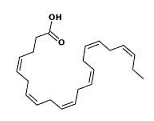|
Definition: "An ergogenic aid is any substance or phenomenon that enhances performance "
|
|
||||||||
07.02.2010 |
|
|
Fish oil lengthens life in animal study
If you give fish oil to mice with unhealthy genes, they live noticeably longer. If you give the mice fish oil and severely restrict their food intake, they live even longer. Immunologists at the University of Texas reported this in the Journal of Nutrition. It seems that the polyunsaturated n-3 fatty acids in fish have a longevity effect.
The Texans studied the effects of fish oil on mice with an inherited genetic defect that makes their kidneys susceptible to inflammatory reactions. Immunologists use these mice for fundamental research on immune diseases such as lupus.
The Texans divided their test animals into four groups. The AL groups were allowed to eat as much as they wanted. [AL = ad libitum] The FR groups were given 40 percent less food than the mice would normally eat. [FR = food restriction] The CO groups were given feed that consisted of 5 percent corn oil. The FO groups were given feed that contained 5 percent fish oil.
The figure below shows how long the mice in the four different groups lived for.
"In these mice", the researchers emphasise. The question is to what extent these results apply to humans.
Tomorrow we will write about molecular research which suggests that the DNA of people with high amounts of omega-3 fatty acids in their blood ages less quickly.
Source:
|
|


